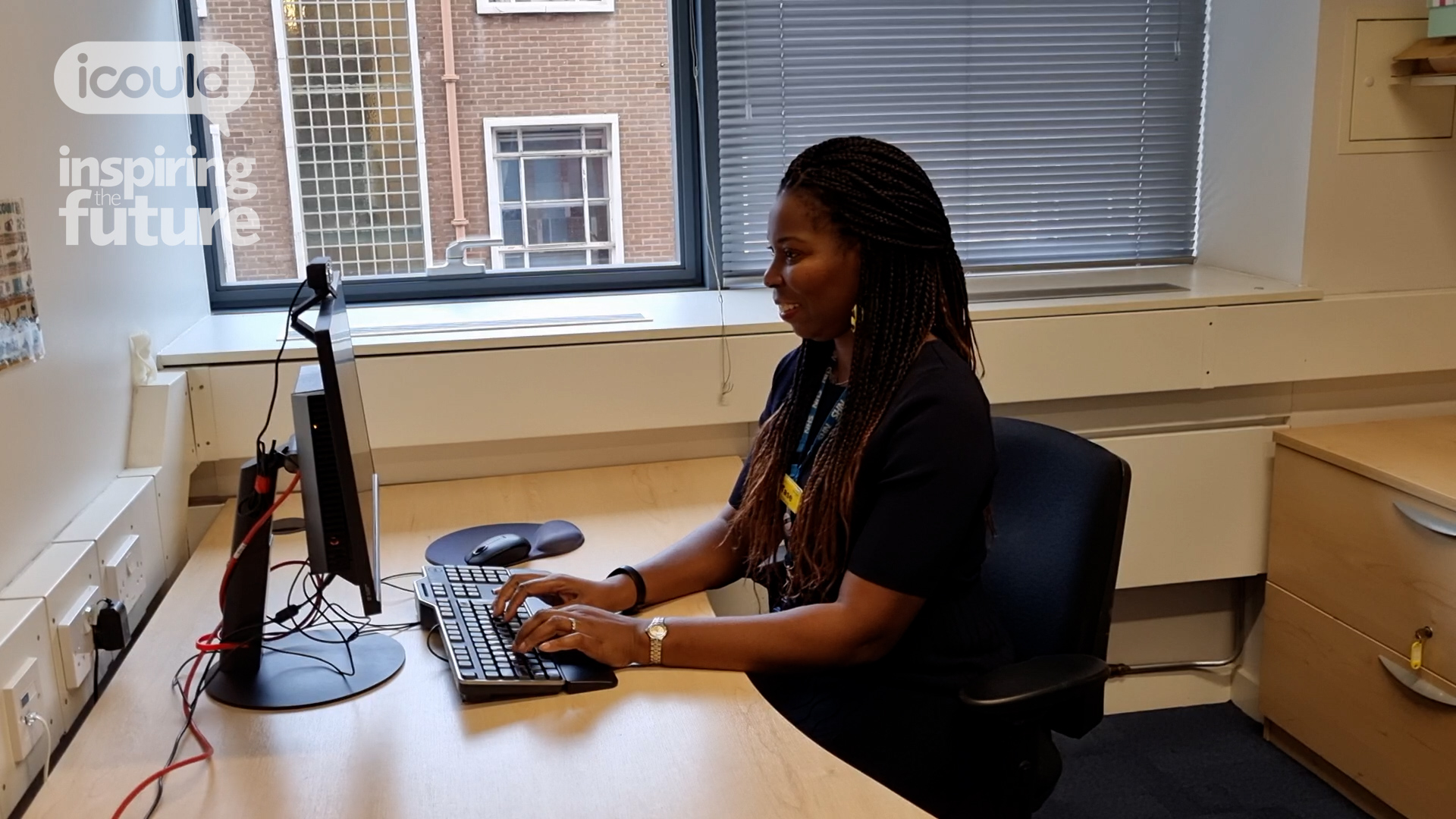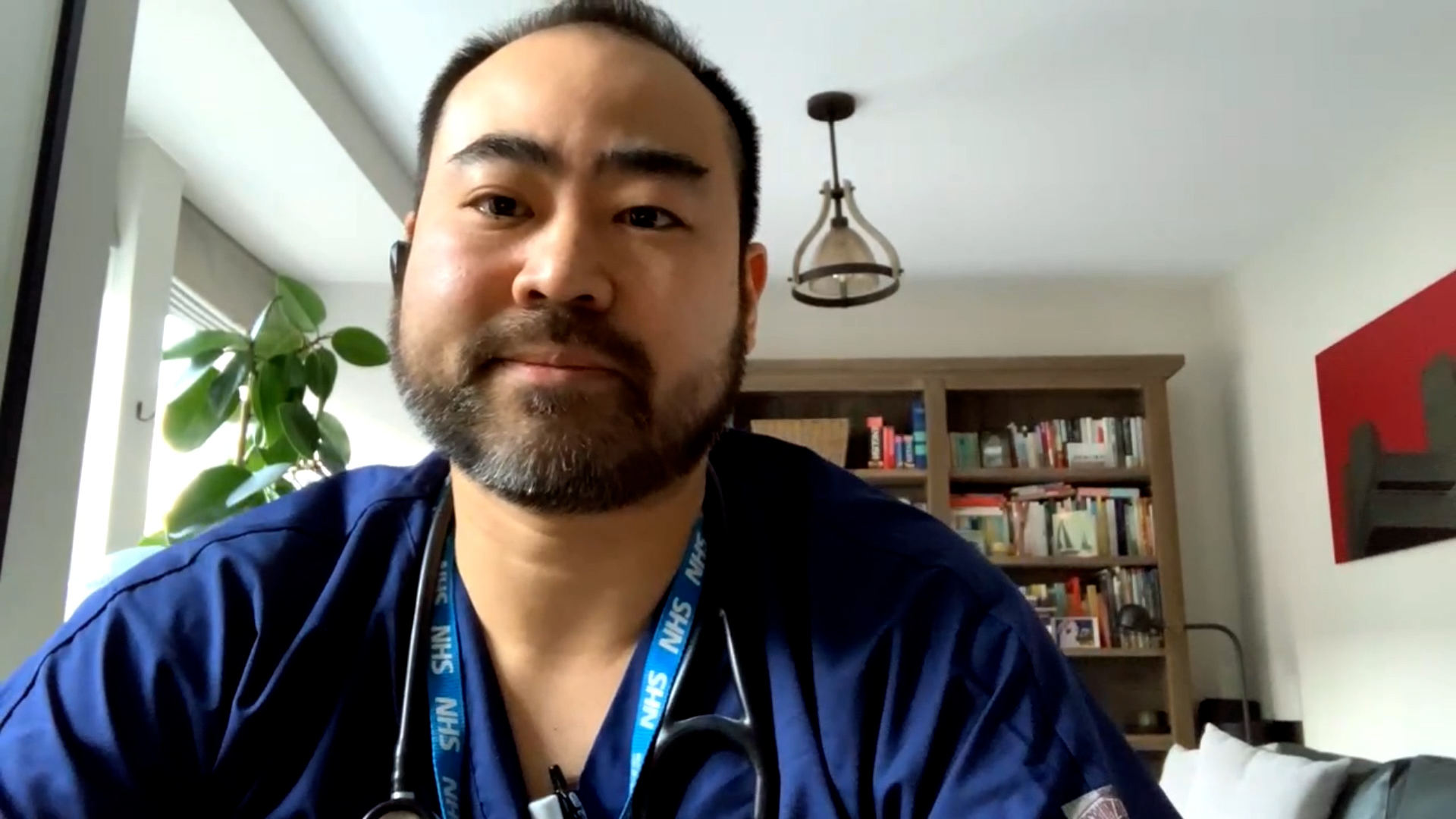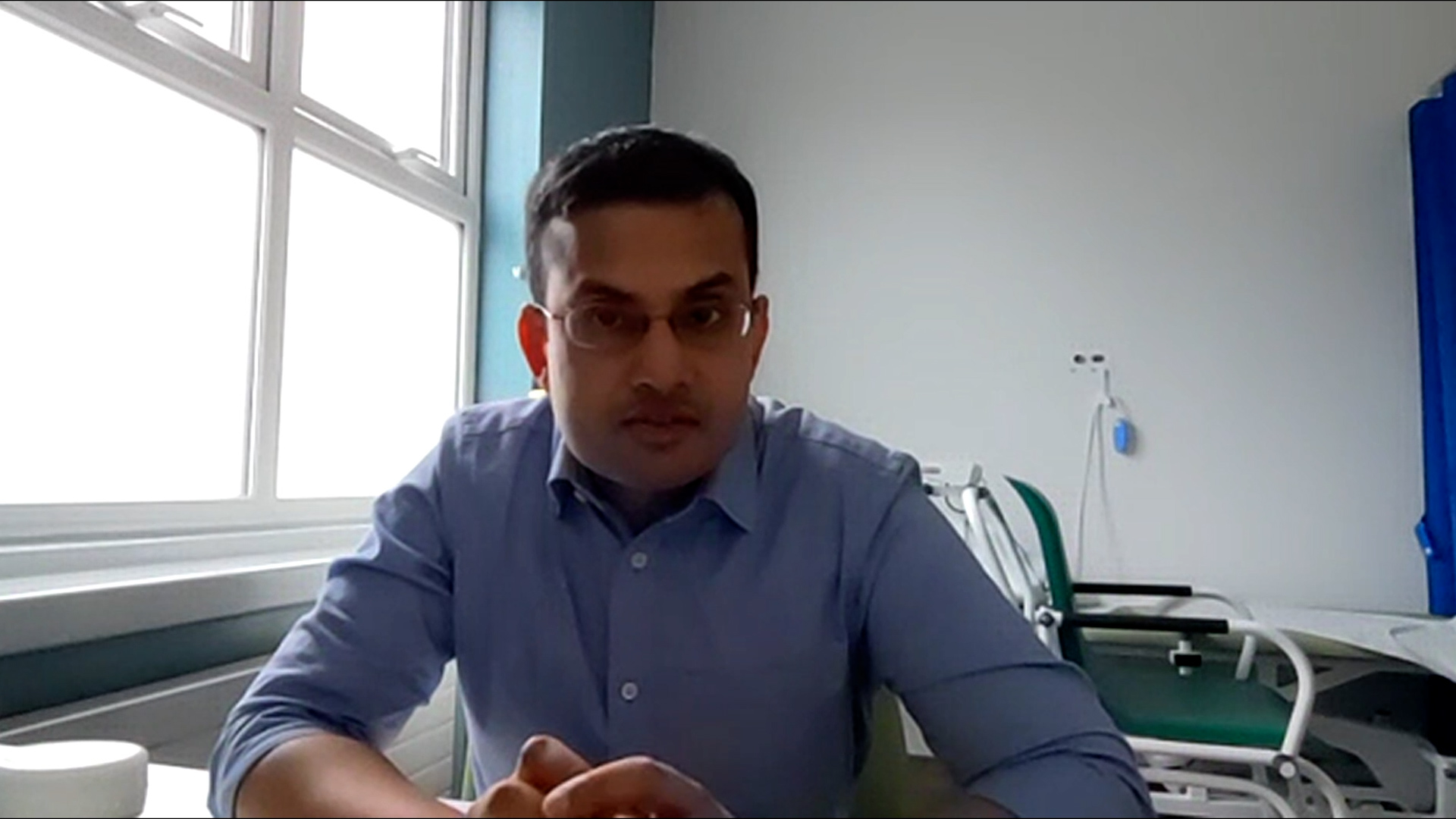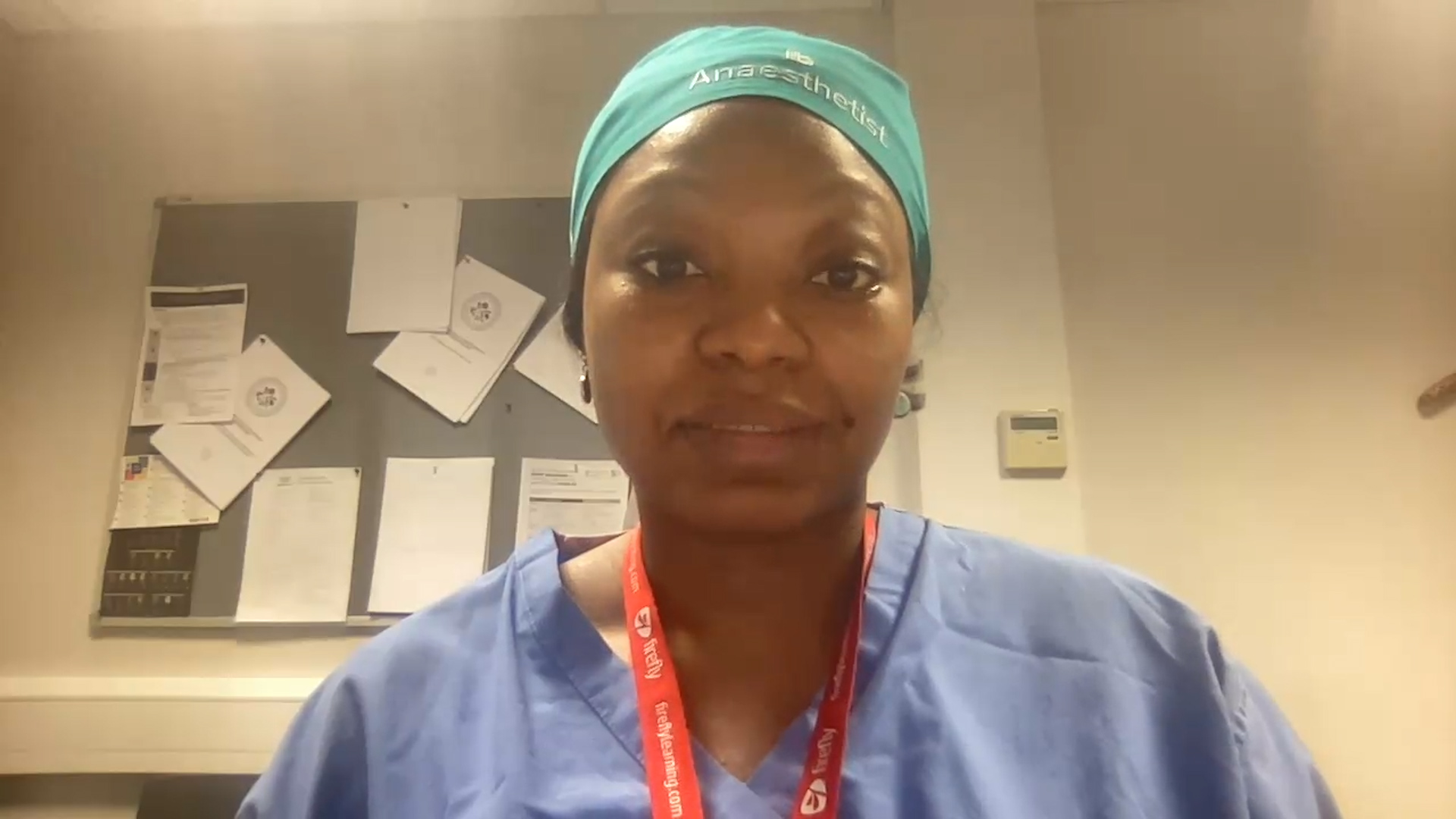Explore: Healthcare
Optometrist
Moorfields Eye Hospital, NHS
info Issues viewing the video?
| Tulsi
Optometrist |
|
| 00:07 | My name is Tulsi and I am a research optometrist at Moorfields Eye Hospital. Optometrists are trained to examine the eyes and check for problems with vision or signs of eye disease. We will usually carry out a health assessment, offer advice, prescribe glasses or contact lenses or refer patients for further treatment when necessary. My job involves carrying out specific tests, and we use these measurements to learn about the patient’s current eye problem. |
| 00:37 | I really enjoy meeting new people every day and giving the patient the best level of care. Being an optometrist allows me to balance my love of meeting new people but also challenging my clinical skills at the same time. |
| 00:50 | As an optometrist it is extremely important to have good communication skills. You need to work well within your team as you can usually meet up to 20 new people a day, especially if you work in a busy optometrist store. It is important that you are able to manage and understand what every patient needs. This will ensure that their journey within your store is a very smooth and enjoyable one. Being a personable and kind optometrist allows you to build a relationship with your patient to gain their trust. This will mean that they will recommend friends and family to you and keep coming back for their regular eye examinations. |
| 01:27 | I studied my GCSEs and A-levels at a grammar school in the Midlands. For my subjects I chose chemistry, biology, religious studies and maths. This was to ensure I had a variety of different subjects that I truly enjoyed. I then went on to study optometry at City University in London. When I graduated I finished my training year and I moved on to work at multiple different stores over the course of three years. After I finished at these stores I then moved to an eye hospital where I am today. I work at this eye hospital on a research study as the lead optometrist to help young patients with their eyesight. Optometrists study at university for three years. You have to participate in a period of training after university before you are deemed to have the knowledge and skills to be a registered optometrist. I definitely realised early on in my career that I wanted variety in my working week. It was very important to me that no one day would ever be the same. I always wanted to be around different environments every single day and this meant that I would ultimately keep pushing myself outside of my comfort zone. Because I am in these different environments most days, it means I am meeting many different optometrists and healthcare professionals where we are able to share advice with each other. I worked with a brilliant supervisor just after university on my training year, who was a big influence on my journey. She helped me to reach my full potential and really explore my options. I wouldn’t be where I am today without her. |
| 03:06 | It is important to have a good balance between the work that you do and your hobbies. Being an all-rounded person that is passionate about their life inside and outside of work is not only important when applying to university and future jobs but also important to protect your health and mental wellbeing. I would definitely recommend having work experience within an optometrist store, just to make sure you are choosing the right option for yourself. It is important to have familiarity with the role. The more people you speak to the more insight that you will get into the optometrist’s career. |
| 03:41 | END OF TRANSCRIPTION |
“I really enjoy meeting new people every day and giving the patient the best level of care.” Tulsi studied optometry at university. After qualifying, she worked in opticians’ stores before moving to an eye hospital. She’s now working on a research study to help young patients with their eyesight.
More information about Ophthalmic opticians
Data powered by LMI For All
£51,480
average salary
The UK average salary is £29,813
26
average weekly hoursThere are 37.5 hours in the average working week
23%
male
77%
female
The UK workforce is 47% female and 53% male
Future employment
Future employment
Description
Ophthalmic opticians test patients’ vision, diagnose defects and disorders and prescribe glasses or contact lenses as required.
Qualifications
Entrants require a degree in Optometry, must have passed the Professional Qualifying Examination of the General Optical Council, and have completed a pre-registration year. Advanced training in specialised areas is available.
Tasks
- Examines eyes and tests vision of patient, identifies problems, defects, injuries and ill health;
- Prescribes, supplies and fits appropriate spectacle lenses, contact lenses and other aids;
- Advises patient on proper use of glasses, contact lenses and other aids, and on appropriate lighting conditions for reading and working;
- Refers patient to a specialist, where necessary;
- Carries out research with glass and lens manufacturers.
Employment by region
Top 10 industries for this job
Retail trade
24011
Employment status
Related career stories
⇦
⇨







